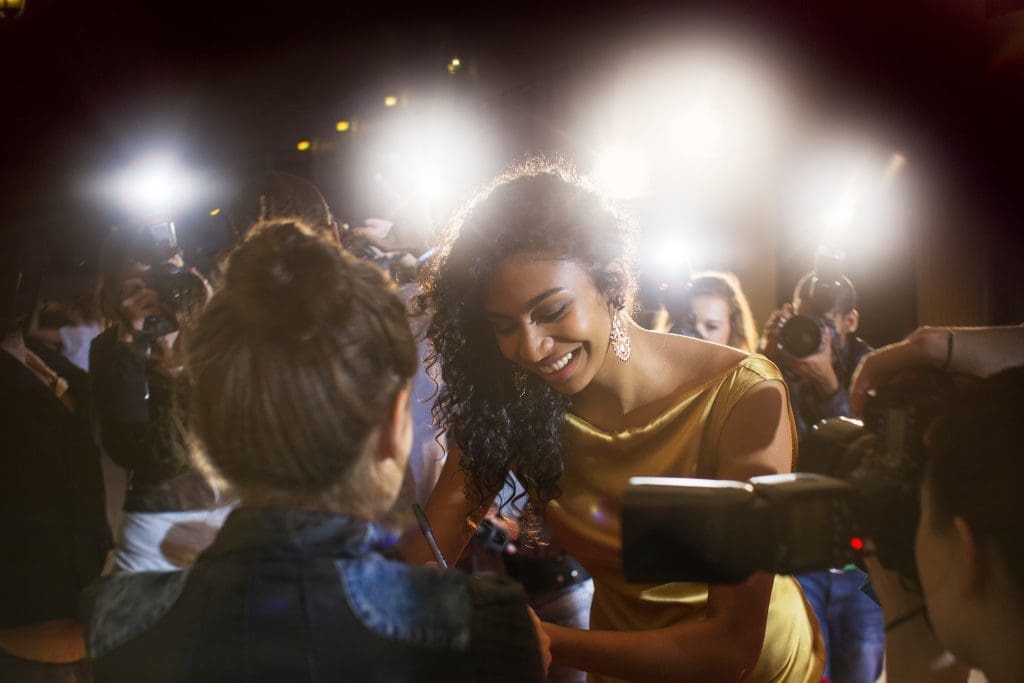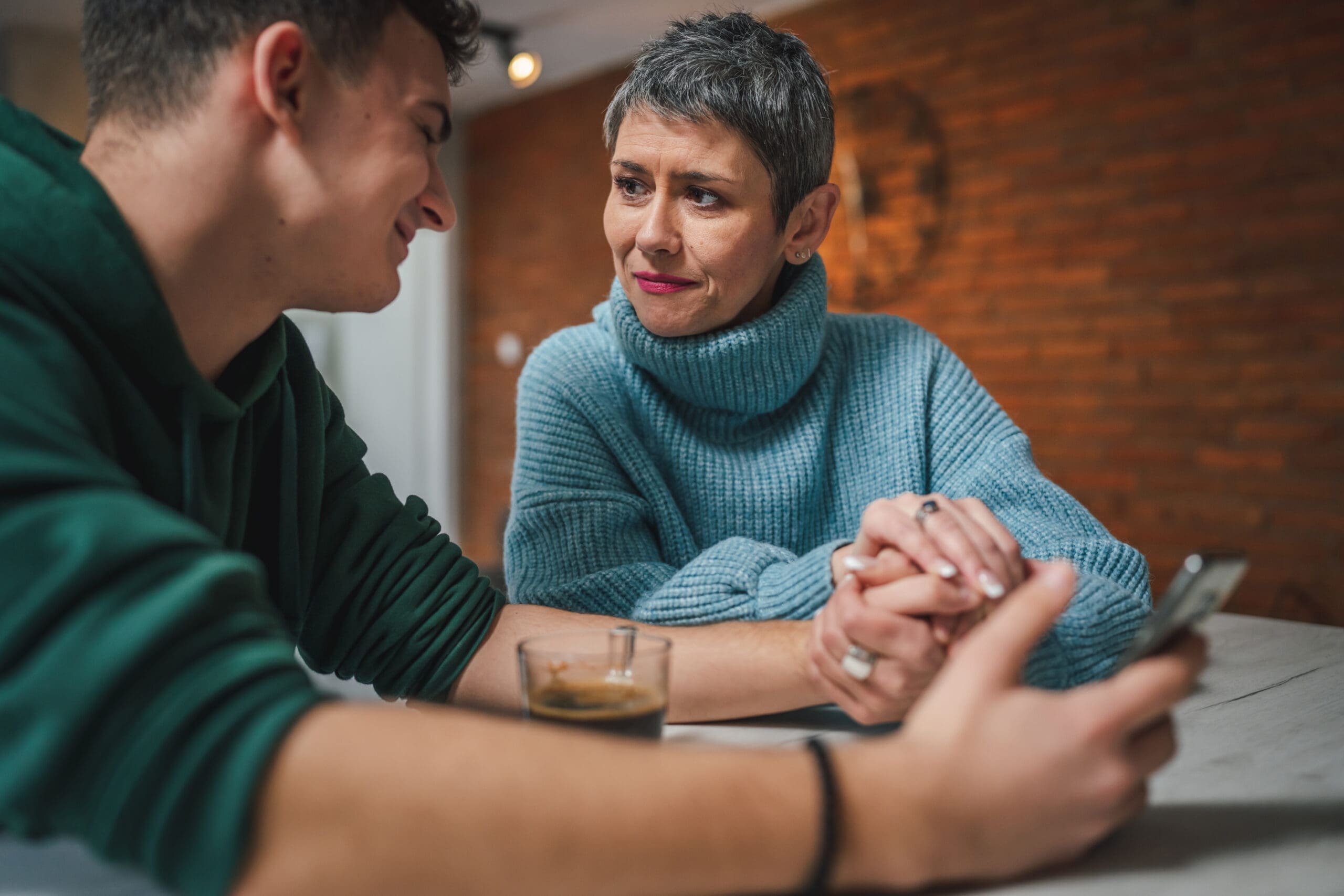Are Celebrities Good Role Models for Teens?
Throughout adolescence, your teenage son or daughter will go through the process of developing their identity, and they may feel they found that in a celebrity, influencer, movie star, rapper, or other notable figure. They may look up to these famous people to help them determine their own values, goals, beliefs, style, and more. As a parent, you may wonder, “Are these celebrities good role models for my teen?”
Table of contents
Jeana Thomsen, executive director at New Haven, a residential treatment center in Utah, explained why teens may be drawn to those who are famous and in the public eye.
“Often, celebrities have large followings, and teenagers feel part of something.”
By being a fan of a celebrity or well-known figure, your son or daughter may feel like they’re a part of a community and may establish connections with other fans. In theory, this could fuel a deeper influence on your teen, as the more connected they feel, the more that celebrity may affect the development of their identity.
How Can Kids Be Fans But Not Lose Themselves?
One way to help teenagers be fans without losing themselves is to encourage them to engage in activities outside of social media and fandom.
“If they’re busy with other things, they feel good about activities they’re engaged in, and they feel successful in other endeavors, they’ll be less likely to need belonging and validation from liking or imitating a celebrity,” Thomsen said.
She also recommended supporting healthy, real-life relationships with family and friends to negate some of social media’s effects on teens. If they’re engaged with others, they’ll be more likely to have a balanced view of celebrities.
Are Celebrities Good Role Models?
“Yes and no,” Thomsen said in response to this question. She explained that some celebrities can be positive role models, especially when they serve as mental health advocates and activists for critical issues, using their platform to create awareness, foster acceptance, and encourage action.
“Some celebrities have causes that are important to them that can be healthy for teenagers.”
She pointed to examples of body positivity and conservationism. Celebrity mental health advocates and those who’ve gone through recovery like Selena Gomez, Ariana Grande, and Michael Phelps are also helping break the stigma around mental illness, prioritizing their mental health and seeking treatment. Recently, the Olympics and other notable competitions have brought the issue of professional and student-athlete mental health to the forefront.

What other celebrities are good role models? Those famous for taking a stand, such as environmental activist Greta Thunberg, gun control activist David Hogg, and female education activist Malala Yousafzai, can have a positive influence by encouraging teens to organize around the issues they care about that have social and personal value.
However, some celebrities can be bad role models.
“Other times, celebrities are open about using substances and showcase that on social media, which can influence teenagers in an unhealthy way,” Thomsen said.
Examples of bad role models include influencers like RiceGum, who’s posted offensive content, and Jake Paul, who’s faced sexual assault allegations.
The Influence of Celebrities
Whether celebrities are good or bad role models, they can influence your teen’s identity, values, attitudes, and behaviors. Those who flaunt their status may influence young people to value superficial aspects of their lives like brand names and their image. Influencers and celebrities who share edited or unrealistic images could affect a young person’s self-esteem and self-image, leading to body dysmorphia (a body image disorder) and eating disorders in teens.
Negative ways celebrities can influence teens
- Normalizing behaviors like smoking or substance use.
- Promoting violent or criminal behavior like vandalism, fighting, or driving under the influence.
- Modeling poor decisions around relationships or sex.
Positive ways celebrities can influence teens
- Promoting dedication to hard work.
- Modeling how to positively handle situations when they make mistakes.
- Talking openly about mental health issues.
The good news is you can help your teen understand the difference between the positive behaviors, values, and attitudes of those who influence them and the negative ones.
How To Help Your Teen Distinguish Between Useful and Damaging Role Models
If you want to help guide your teen in understanding the influence these figures may have over behavior, attitudes, values, and other aspects of their life and identity, you need to first have a strong connection with your son or daughter. This means focusing on trust, empathy, reciprocity, vulnerability, and healthy intimacy between you and your teenager.
“Teens are more willing to listen to someone who they know loves them,” Thomsen said. “Once they know this, it becomes easier to have conversations about this with them.”
Once there’s an established connection, she suggested saying something to the effect of “I’ve noticed you paying a lot of attention to (insert celebrity). Tell me what you like about them.”
Once you’ve asked the question, actively listen to the response.
“This works a lot better than saying, ‘I’m concerned about the people you’re following on social media,’” Thomsen said.
You still might have concerns, but you need to seek understanding before lecturing or trying to change their mind.
Staying Plugged Into the Celebrities Your Teen Is Following
Are celebrities good role models for your teen? They may be mental health advocates or influential activists for important issues, or they may be promoting drug or substance use, an unrealistic body image, or materialistic standards. The only way you’ll know is if you understand who’s influencing your teenager.
To that end, Thomsen recommended that parents have access to their children’s phones. She recognized that every family will handle this differently.
“Some parents manage the passwords on their children’s phones so that they can log in anytime and check things. Other parents require that they can follow their children on social media. Many parents use parental controls that don’t allow their children to download apps without permission, which helps them keep an eye on what’s going on.”
While setting boundaries around cellphone usage is a critical step, your relationship with your teen is just as important.
“Staying connected and keeping the lines of communication open are essential,” Thomsen said.
Embark is the most trusted name in teen and young adult mental health treatment. We’re driven to find the help your family needs. If you’re looking for support, contact us today!
Related Posts

